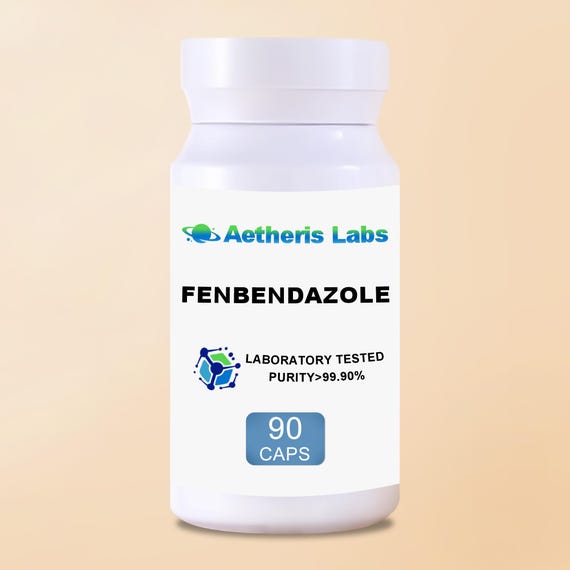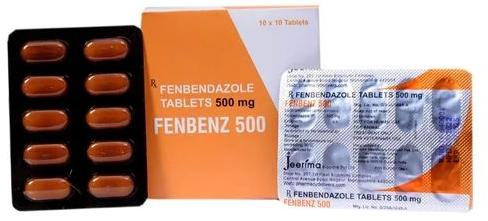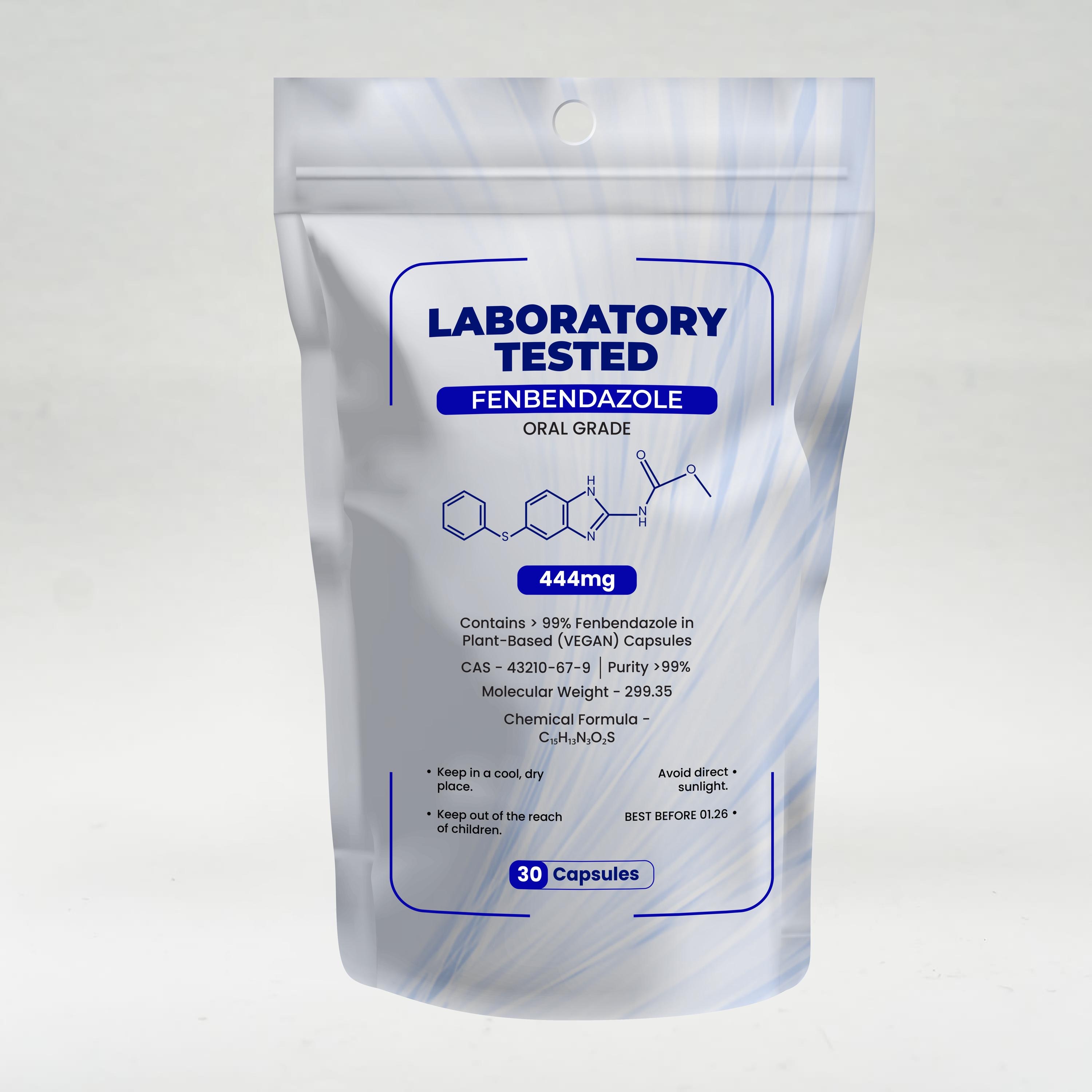fenbendazole capsules: What to Expect Before and After Treatment
Wiki Article
Checking out the Systems Behind Fenbendazole and Its Effect On Pet Health
Fenbendazole is an extensively made use of anthelmintic recognized for its effectiveness against different bloodsuckers. Its main system entails the restraint of microtubule formation, which interrupts essential procedures in these pathogens. Past its antiparasitic residential properties, fenbendazole likewise shows up to boost immune feedbacks and has anti-inflammatory advantages. Understanding these complex impacts might disclose new applications for pet health and wellness. However, inquiries remain concerning its complete possibility and safety and security account.The Pharmacokinetics of Fenbendazole
The pharmacokinetics of fenbendazole, an extensively made use of anthelmintic in vet medication, involves the study of its absorption, distribution, metabolic process, and excretion within animal systems. After administration, fenbendazole is swiftly absorbed from the gastrointestinal tract, with peak plasma focus occurring within hours. Its circulation is influenced by variables such as cells binding and lipid solubility, permitting it to penetrate different cells efficiently. The medicine undertakes substantial metabolism largely in the liver, where it is exchanged energetic and inactive metabolites. These metabolites play a duty in the medication's general effectiveness and security profile. Discharging happens mostly via feces, with a smaller percentage gotten rid of through urine. The half-life of fenbendazole varies among species, which influences dosing routines. Understanding these pharmacokinetic properties is important for optimizing its healing usage and guaranteeing efficient parasite control in veterinary methods.Mechanisms of Action Versus Parasites
Fenbendazole exerts its antiparasitic impacts mainly with the inhibition of microtubule formation in bloodsuckers. This interruption impacts their architectural honesty and cellular functions, leading to impaired basal metabolism. Therefore, the drug effectively jeopardizes the survival and reproduction of different parasitical organisms.Restraint of Microtubule Formation
Inhibition of microtubule development represents an essential system with which specific anthelmintic agents, consisting of fenbendazole, apply their effects on bloodsuckers. Fenbendazole binds to tubulin, a protein that develops microtubules, interrupting the polymerization procedure essential for microtubule assembly. This disturbance hinders vital cellular features, consisting of mitosis, intracellular transportation, and architectural honesty. As microtubules play a vital role in keeping the form and feature of parasitic cells, their inhibition causes cell cycle arrest and ultimate fatality of the parasite. This device is especially efficient versus nematodes, as their reliance on microtubules for wheelchair and nutrient absorption makes them susceptible to fenbendazole. Subsequently, the restraint of microtubule formation is a critical aspect of fenbendazole's therapeutic effectiveness in vet medicine.Interruption of Energy Metabolic Process
Disrupting basal metabolism is one more essential device through which fenbendazole targets parasitical microorganisms. This anthelmintic changes the energy manufacturing pathways within parasites, largely impacting their capacity to generate adenosine triphosphate (ATP) By inhibiting glucose uptake and interrupting mitochondrial feature, fenbendazole restrictions the power sources necessary for the survival and reproduction of these microorganisms. Therefore, parasites become increasingly prone to environmental tensions and immune responses. Furthermore, the disturbance in power metabolism not only influences the bloodsuckers straight however likewise decreases their capability to absorb nutrients, even more impairing their development. On the whole, the disturbance of power metabolic rate represents a fundamental aspect of fenbendazole's effectiveness versus various parasitical infections, adding greatly to boosted pet wellness end resultsPotential Negative Effects and Security Account
The possible adverse effects and security account of fenbendazole warrant cautious factor to consider, especially in vet applications. While typically considered as safe, some pets may experience adverse responses, including stomach disruptions such as vomiting and diarrhea. Additionally, neurological signs and symptoms, although unusual, have been reported in sensitive individuals, highlighting the demand for tracking throughout therapy.
Fenbendazole's safety in different species, consisting of pet dogs and felines, has actually been documented, however dose and period of treatment need to be very carefully taken care of to lessen threats. Expecting or breast feeding pets may also call for special focus, as the impacts on creating unborn children or nursing offspring are not completely recognized.
Normal vet appointments can help mitigate potential negative effects and guarantee the drug is provided suitably. As a result, while fenbendazole is an efficient anthelmintic representative, watchfulness concerning its negative effects is essential for maintaining pet wellness.

Fenbendazole's Influence on Immune Function
Fenbendazole has been kept in mind for its prospective to regulate body immune system actions in pets. Its anti-inflammatory buildings might add to enhanced immune function, supplying a twin benefit in managing health (fenbendazole). Recognizing these results is essential for assessing fenbendazole's duty in vet medicationImmune System Inflection

Anti-inflammatory Features
Anti-inflammatory impacts stand for a significant aspect of fenbendazole's influence on immune feature. Research study shows that fenbendazole might lower the manufacturing of pro-inflammatory cytokines, which are crucial in mediating inflammatory reactions. By regulating these cytokines, fenbendazole can potentially ease inflammation-related problems in pets. This anti-inflammatory action not only help in taking care of signs and symptoms connected with various illness but also enhances general immune system efficiency. Furthermore, its capability to promote a balanced immune response helps avoid too much inflammatory damage, which can cause chronic wellness issues. Consequently, fenbendazole's role in swelling administration underscores its value in veterinary medicine, offering a double advantage of antiparasitic action and body immune system assistance for pet health.Applications Beyond Typical Parasitical Infections
While mainly identified for its effectiveness against different parasitical infections, fenbendazole has gathered focus for possible applications yet typical scope. Recent research studies recommend that fenbendazole might have beneficial impacts on mobile health and immune feedback, making it an appealing prospect for managing other health conditions in animals. Its reported anti-inflammatory residential or commercial properties may give alleviation for pets enduring from chronic inflammatory illness. In addition, some research study indicates that fenbendazole can play a function in sustaining the overall wellness of animals by enhancing nutrient absorption and gastrointestinal health and wellness. Moreover, its possible as an accessory therapy in cancer cells therapy has triggered interest, as initial findings recommend it could prevent tumor cell growth in particular contexts. These varied applications highlight fenbendazole's convenience, encouraging further exploration right into its diverse advantages for animal health and wellness past its conventional use as a deworming representative.Future Research Instructions and Effects for Pet Wellness
The exploration of fenbendazole's prospective applications has opened brand-new methods for study focused on enhancing pet health. Future researches might concentrate on its performance versus a wider series of pathogens, including microorganisms and infections, consequently expanding its role in veterinary medicine. The effects of fenbendazole's systems, such as its effect on immune inflection, warrant further investigation to recognize how it can reinforce total health and wellness in numerous types.In addition, study might explore perfect dosages and solutions to make the most of efficiency while minimizing potential negative effects. Investigating fenbendazole's synergistic impacts with other medicines can bring about a lot more effective therapy procedures. Longitudinal research studies reviewing long-term outcomes in animals treated with fenbendazole could provide valuable insights right into its security and performance. Overall, the ongoing expedition of fenbendazole provides encouraging possibility to boost animal health, demanding a collective strategy amongst scientists, vets, and pharmaceutical programmers to promote advancements around.
Often Asked Questions
Can Fenbendazole Be Utilized in Animals for Parasite Prevention?
The concern of whether fenbendazole can be utilized in livestock for parasite avoidance is pertinent, as producers look for effective treatments (fenbendazole capsules). Study indicates it may supply benefits, yet proper guidelines and veterinary advice are crucial for safe useWhat Is the Suggested Dose of Fenbendazole for Different Animals?
222 mg
Are There Any Type Of Recognized Medication Communications With Fenbendazole?
Current knowledge suggests that fenbendazole might interact with specific medications, possibly influencing their efficiency or metabolic process. Veterinary specialists suggest seeking advice from with a veterinarian to evaluate specific animal instances and identify any kind of feasible interactions before administration.How Does Fenbendazole Contrast to Various Other Antiparasitic Drugs?
Fenbendazole is frequently compared to other antiparasitic medicines based upon efficiency, range of task, and safety accounts. It is preferred for its performance against a wide variety of bloodsuckers while generally exhibiting marginal side effects in pets.Is Fenbendazole Effective Against Viral or Bacterial Infections in Pets?
The efficiency of fenbendazole against viral or microbial infections in animals stays unverified. Study mostly concentrates on its antiparasitic buildings, with limited proof supporting any type of duty in treating non-parasitic infections in veterinary medicine.Report this wiki page